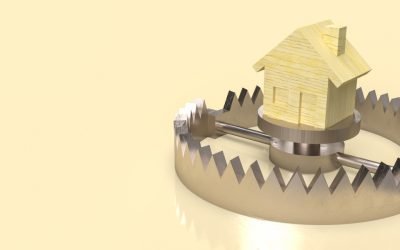When considering purchasing an old house, you might not be aware that beyond the charm of vintage architecture lie hidden complexities that could impact your decision substantially.
While the allure of a historic home is undeniable, the potential maintenance and renovation costs could tip the scales.
Buying an old house can be a good investment, as they often have unique charm and character. However, it’s important to thoroughly inspect the house for any potential issues such as structural problems, outdated wiring or plumbing, and other maintenance issues. Consider your budget for renovations and upkeep before making a decision.
Before making a final choice, it is important to weigh all factors carefully, including the long-term benefits and drawbacks that come with embracing a piece of history as your own.
Key Takeaways
- Consider the historical charm and unique features of an old house.
- Be prepared for potential structural issues and costly repairs.
- Understand the higher maintenance needs and commitment required.
- Conduct a detailed home inspection before purchasing an old house.
Pros of Buying an Old House
When considering the purchase of an old house, one must weigh the advantages of its historical charm and unique architectural features.
Old houses exude a sense of nostalgia and uniqueness through their abundance of hand-carved stained wood trims, high ceilings, and stained or leaded glass, adding a touch of historical charm that’s hard to replicate.
The ornate fixtures and finishes found in these houses, especially those constructed before WWII, contribute to their unique character and appeal, setting them apart from modern homes.
Moreover, old houses often showcase intricate architectural details and craftsmanship that showcase a level of artistry that may be challenging to find in newer constructions.
The distinctive features present in these homes not only provide a glimpse into the past but also offer a sense of pride in ownership. With proper care and preservation efforts, the historical charm and craftsmanship of old houses can be maintained and cherished for generations to come.
Cons of Buying an Old House
Considering the purchase of an old house, you should be aware that along with its historical charm and unique features, there are cons that necessitate careful attention and maintenance to guarantee longevity and safety.
Old houses often come with unique challenges that require a thorough inspection before committing to a purchase.
Structural issues such as foundation settling can lead to costly repairs, impacting your budget greatly. Understanding the maintenance needs of older homes is important as they may require more frequent upkeep compared to newer properties.
Owning an old house demands a certain level of understanding and commitment due to the potential problems that may arise over time. Before making a decision, make sure you conduct a detailed home inspection to uncover any underlying issues that could become a burden in the future.
Pros of Buying a New House
Exploring the advantages of purchasing a new house reveals a range of benefits that cater to modern living standards and potential long-term savings.
New houses come equipped with modern amenities, including smart home technology and energy-efficient appliances, enhancing convenience and sustainability.
Buying a new house can lead to lower maintenance costs in the long run, as they’re designed with the latest construction standards, reducing the need for immediate updates and repairs.
Additionally, newer builds are tailored for energy efficiency, potentially resulting in savings on utility bills over time.
One of the significant advantages of new houses is the opportunity for customization and personalization. With a fresh canvas to work with, homeowners can tailor the space to their preferences, making it uniquely their own.
This level of personalization assures that the house reflects the homeowner’s style and needs, creating a comfortable and welcoming environment.
By investing in a new house, you aren’t just purchasing a property but also gaining a modern living space that aligns with contemporary lifestyles and offers potential long-term savings.
Cons of Buying a New House
An inherent drawback of investing in a new house lies in the potential absence of historical charm and unique architectural features typically found in older properties. When contemplating the purchase of a new home, there are several factors to take into account:
- Higher Initial Costs: New houses generally come with higher initial costs compared to older homes, impacting upfront affordability.
- Lack of Mature Landscaping: New constructions may lack the mature landscaping and established neighborhoods commonly found in old homes.
- Limited Customization Options: New homes may offer limited customization options, restricting the personalization of living spaces.
- Potential Appreciation: New homes might have fewer opportunities for potential appreciation in value compared to older, well-maintained homes.
- Maintenance Costs: While new houses may require less immediate maintenance, they can still incur costs over time that need to be factored into the overall investment.
When weighing the decision to buy a new house, it’s imperative to take these aspects into consideration to make an informed choice that aligns with your preferences and financial goals.
Considerations When Purchasing a Historic Home
When deliberating the acquisition of a historic home, it is essential to thoroughly assess the property’s historical significance and preservation requirements.
Historic homes must meet specific preservation criteria and maintain their architectural integrity to be considered for certification.
Buying a designated historic home comes with the responsibility of preserving its history and architecture, requiring permits for any exterior changes to uphold its historical integrity.
Frequently Asked Questions
Is It a Good Idea to Buy an Old House?
Buying an old house presents challenges like renovation costs, maintenance issues, and potential health hazards. However, the historic charm, neighborhood character, and potential for a unique living experience can outweigh these concerns if managed carefully.
Is It Good to Buy 30 Year Old House?
When buying a 30-year-old house, consider renovation challenges, maintenance costs, and structural integrity. Despite potential upgrades and safety concerns, the historical charm, neighborhood appreciation, and potential resale value can make it a worthwhile investment.
Is It Worth Buying a 20 Year Old House?
When considering a 20-year-old house, weigh renovation costs, resale value, structural integrity, maintenance history, energy efficiency, neighborhood amenities, historical charm, potential upgrades, home inspection, and long-term investment. Your decision should align with your goals and budget.
Is It OK to Buy 40 Year Old House?
Is it okay to buy a 40-year-old house? Renovation costs for structural integrity, historical charm, and maintenance requirements should be considered. Upgrades, energy efficiency, resale value, and potential hazards may impact your decision.
Final Thoughts
To sum up, when pondering the purchase of an old house, consider the intertwining of history and charm with the necessity of maintenance and potential safety risks.
As you weigh the decision, envisage the fusion of character and craftsmanship against the backdrop of modern amenities and energy efficiency in a new home.
Ultimately, the choice between old and new dwellings hinges on your personal preferences, financial constraints, and willingness to undertake renovations.
- Rent-to-Rent Schemes: Hidden Dangers Lurk - July 6, 2024
- How to Sell Your House Fast in Kent - July 5, 2024
- 7 Tips to Sell Your House Fast - July 4, 2024


